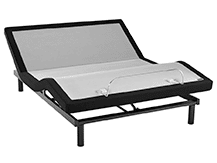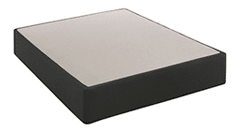
Anxiety is a natural part of daily life that serves as an alert system to potential danger and drives a person to act when a threat is present. However, people with anxiety disorders suffer from repeated “false alarms” that lead to chronically dysfunctional sleep cycles. Sometimes insomnia and nightmares lead to anxiety when it’s time to sleep, thus further perpetuating sleep disturbances. It is estimated that 10 to 25 percent of Americans will suffer from anxiety disorders at some time in their lives. Similarly, a third of Americans will suffer from sleep disturbance.
“Never underestimate the value of a better mattress,” says Sean Hathaway, owner of the Mattress World Northwest chain in Oregon, with store locations in downtown Portland, Wilsonville, Canby, Salem, Clackamas and more. “If it’s been a decade since your last purchase, then it’s definitely something to consider. Many customers talk about waking up with tremendous back and neck pain, which can be a trigger for anxiety, or can just exacerbate stress that you may already be experiencing. No one likes tossing and turning on a lumpy or rock-hard mattress. The newer mattress materials like latex offer the perfect combination of support and comfort to help you drift off to sleep more peacefully.”
Once you have found the perfect type of mattress and pillow for your sleeping style and preferences, you can focus on lifestyle choices that may be affecting your sleep quality. Start preparing for bed early and stick to a regular schedule as best you can – even on the weekends. Consider overestimating the time you have to sleep; if you want seven hours, give yourself eight for the extra time needed to actually fall asleep.
Be sure you avoid stimulants like caffeine and chocolate after 2 p.m., and nicotine two hours before bed. Even alcohol can disturb the quality of sleep you get, so try to stick to a two drink maximum.
Exercise earlier — in the morning or afternoon. Get off the computer at least 30 minutes before bed and avoid tasks like paying bills before bed. Instead, dim the lights, take a warm shower, drink herbal “sleepy time” tea, read a book, place a heated neck pillow over your shoulders, listen to relaxing music, and/or meditate.
Try eating foods like Montmorency Cherries and Sunflower Seeds, which are known to naturally increase melatonin to help you sleep. Buy black-out shades to darken your room and use a fan or white noise machine to drown out the din of traffic or other sounds that you fixate on at night.
Spray your favorite aromatherapy scent on your pillow. Face the clock away from you, so you are not tempted to stare at it and count the passing minutes or hours.
There are certain activities you can do to soothe anxious thoughts away. Keep a journal to jot down tasks you need to complete or worries that you have to clear from your mind before bed. You can also keep a sleep journal that tracks the times you sleep, what you eat, when you exercise, and what activities you are doing a few hours before bed to recognize patterns that help or hinder your rest.
Use a hypotherapy — like a “deep sleep” or “guided imagery” audiobook – to focus your attention on soothing thoughts before lulling you to slumber. Learn how to breathe deeply to enhance relaxation.
It can be difficult to sort out what’s normal and what may be considered anxiety, but you may want to talk to your doctor about anxiety if any of the following statements pertain to you:
You may seek treatment for anxiety and sleep disorder from a primary physician, mental health doctor, or sleep clinic.
Anxiety and fatigue take a terrible toll on the body over time. Prioritize your mental health so that anxiety no longer takes a toll on your social relationships, work performance, and immune system. Whether it’s a few changes in your routine, a new mattress, or a prescription, it is possible to overcome anxiety and sleep dysfunction. To learn more about optimizing your sleep setup to get the most restorative rest possible, drop by one of Mattress World Northwest’s 11 convenient showrooms in the Portland, Oregon region.
While you can't go wrong with any of our mattresses, here are a few factors you'll want to consider before making a purchase: your sleep position (and if you have a partner, theirs as well), the size of the space, and a price point. If you have any questions, rest easy knowing that our team is happy to help you find that perfect fit.
| Size | Dimensions |
|---|---|
| Twin | 38″ wide x 75″ long x 9.25″ tall |
| Twin XL | 38″ wide x 80″ long x 9.25″ tall |
| Full | 54″ wide x 75″ long x 9.25″ tall |
| Queen | 60″ wide x 80″ long x 9.25″ tall |
| King | 76″ wide x 80″ long x 9.25″ tall |
| Cal King | 72″ wide x 84″ long x 9.25″ tall |
| Split King (2pk) | 38″ wide x 80″ long x 9.25″ tall |
Mattress World Northwest makes it easy to choose the right foundation for your space and lifestyle.



Reliable support for your boxspring and mattress.
